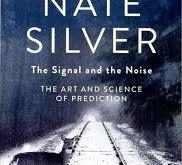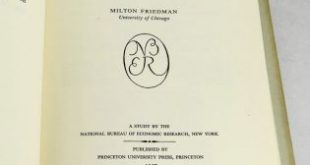The origins of MMT Many mainstream economists seem to think the idea behind Modern Monetary Theory is new and originates from economic cranks. New? Cranks? How about reading one of the great founders of neoclassical economics – Knut Wicksell. This is what Wicksell wrote in 1898 on ‘pure credit systems’ in Interest and Prices (Geldzins und Güterpreise), 1936 (1898), p. 68f: It is possible to go even further. There is no real need for any money at all if a...
Read More »Regression to the mean
Regression to the mean Regression to the men is nothing but the universal truth of the fact that whenever we have an imperfect correlation between two scores, we have regression to the mean. [embedded content]
Read More »The hazards of willfully ignoring uncertainty
The hazards of willfully ignoring uncertainty We forget – or willfully ignore – that our models are simplifications of the world … One of the pervasive risks that we face in the information age … is that even if the amount of knowledge in the world is increasing, the gap between what we know and what we think we know may be widening. This syndrome is often associated with very precise-seeming predictions that are not at all accurate … This is like claiming...
Read More »Milton Friedman’s pet theory finally shown to be wrong
Milton Friedman’s pet theory finally shown to be wrong Milton Friedman’s Permanent Income Hypothesis (PIH) says that people’s consumption isn’t affected by short-term fluctuations in incomes since people only spend more money when they think that their life-time incomes change. Believing Friedman is right, mainstream economists have for decades argued that Keynesian fiscal policies therefore are ineffectual. As shown over and over again for the last three...
Read More »‘Alternative facts’ and voter fraud
‘Alternative facts’ and voter fraud [embedded content] Oh, horrible, oh, horrible, most horrible! What a tragedy — and what shame, all those Americans with more than two brain cells must feel today. I do suffer with them through this nightmare.
Read More »Smoke on the water
Smoke on the water [embedded content] The unsurpassed rock MASTERPIECE.
Read More »BTO
[embedded content]
Read More »Successive approximations
In The World in the Model Mary Morgan characterizes the modelling tradition of economics as one concerned with “thin men acting in small worlds” and writes: Strangely perhaps, the most obvious element in the inference gap for models … lies in the validity of any inference between two such different media – forward from the real world to the artificial world of the mathematical model and back again from the model experiment to the real material of the economic world. The model...
Read More »Yours truly föreläser om nyliberalism
Yours truly föreläser om nyliberalism Smålands Nation Kastanjegatan 7, Lund 2 februari kl. 18.00-20.00
Read More »Don’t let me be misunderstood
Don’t let me be misunderstood [embedded content]
Read More » Lars P. Syll
Lars P. Syll




